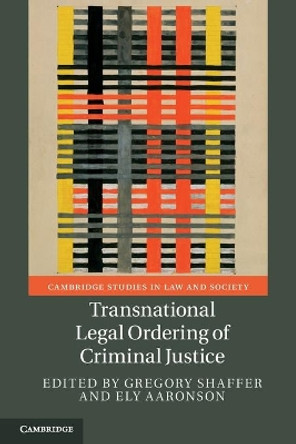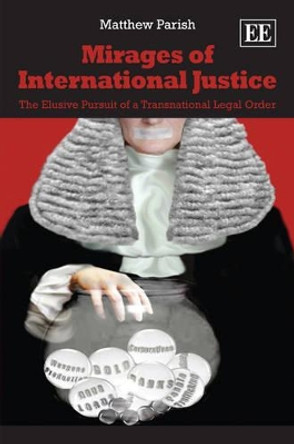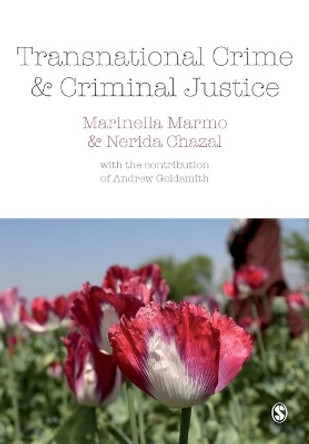Description
A new approach for studying the interaction between international and domestic processes of criminal law-making in today's globalized world.
About the Author
Gregory Shaffer is Chancellor's Professor at the University of California, Irvine. His publications include seven books and over one hundred articles and book chapters, including Constitution-Making and Transnational Legal Order (with Ginsburg and Halliday, 2019); Transnational Legal Orders (with Halliday, 2015); and Transnational Legal Ordering and State Change (2013). Ely Aaronson is an Associate Professor at the University of Haifa, Faculty of Law. His main areas of scholarship include legal history, socio-legal theory, criminal justice, and comparative and transnational legal theory. He is the author of From Slave Abuse to Hate Crime: The Criminalization of Racial Violence in American History (2014).
Reviews
'This important book mounts a fundamental challenge to the nation-state paradigm of criminal justice scholarship. Wide ranging, theoretically rigorous, and consistently readable, it moves the study of transnational legal ordering of criminal justice to a new level of sophistication.' Nicola Lacey, School Professor of Law, Gender and Social Policy, London School of Economics
'There is sway and sweep in the comprehension of translational legal ordering in this fine book. It exposes diversity, incoherence, yet patterns in regimes ranging from criminal regulation of human trafficking to corruption, war crimes, sexual violence, money laundering, human rights, and more. This is a landmark instantiation of a big picture socio-legal framework.' John Braithwaite, Australian National University
'A path-breaking set of essays that examines the driving forces and consequences of the transnationalization of criminal justice law and policy, with reference to criminalizing global social problems, tackling impunity for serious international crimes, and efforts to build human rights penal standards. The work is guided by a coherent theory of the varying roles of states in transnational legal orders. No student of contemporary criminal justice should miss the chance to learn from the theory and case studies.' David Nelken, King's College London
'Norms of criminal justice, no less than crime itself, refuse to remain neatly contained within national jurisdictions. Gregory Shaffer and Ely Aaronson's collection of essays illustrates the ways in which a reasonably distinct transnational order has developed, become elaborated, and in some cases encountered contradiction and resistance. One of the book's great insights is that the transnational legal ordering of criminal law has in some ways empowered the state to reclaim its own legal authority. Read this book, and you will appreciate the impossibility of dichotomizing the study of modern 'national' and 'international' criminal law.' Beth A. Simmons, Andrea Mitchell University Professor of Law, Political Science and Business Ethics, University of Pennsylvania
'The norms, institutions, and practices of criminal justice systems around the world have been deeply transformed in the last few decades by globalization and many new international and transnational legal regimes. Criminal justice, comparative law, and international law scholars are still grappling with these changes. By applying the illuminating theory of transnational legal orders to criminal justice, this impressive group of top scholars gathered in this book provides crucial insights to make sense of these changes. This book is an essential tool for anyone interested in them.' Maximo Langer, Professor of Law and Director of the Transnational Program on Criminal Justice, UCLA School of Law
Book Information
ISBN 9781108836586
Author Gregory Shaffer
Format Hardback
Page Count 288
Imprint Cambridge University Press
Publisher Cambridge University Press
Weight(grams) 600g
Dimensions(mm) 235mm * 157mm * 25mm








